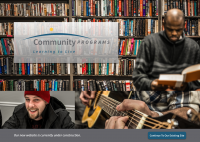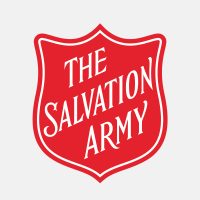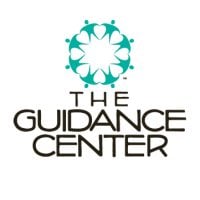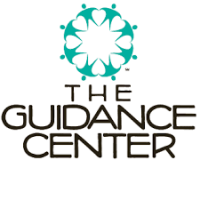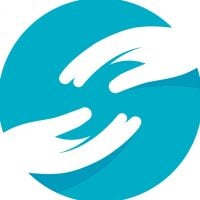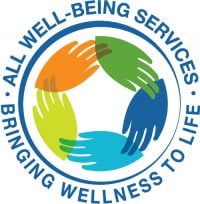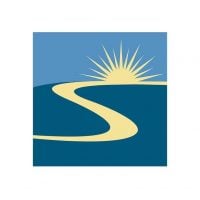Community Programs - Monroe
Drug Rehab Center in Monroe, Michigan
Community Programs - Monroe provides accessible and affordable evidence-based treatment and support for individuals with substance use disorders, offering a variety of services tailored to meet the individual needs of each person, including counseling, medication management, and life skills training, and they also offer resources for recovery and volunteer opportunities to reduce the stigma of addiction.
About
Community Programs, located in Monroe, Michigan, is a CARF-accredited outpatient facility that specializes in treating individuals with substance abuse and sexual offender issues. The organization utilizes a Cognitive Behavioral Therapy model to deliver personalized treatment plans tailored to each client's unique needs.
• Comprehensive assessments and pre-treatment sessions to determine the appropriate level of care
• Individual and group therapy tracks designed to address specific challenges
• Evidence-based practices and culturally informed approaches to ensure effective treatment
• Topics covered include cognitive distortions, negative thoughts and behaviors, addiction and criminal behavior cycles, and relapse prevention
Community Programs is committed to providing accessible and affordable programs to the Monroe community and surrounding counties. Their multidisciplinary team of professionals is dedicated to promoting the physical and mental well-being of each client while equipping them with the tools necessary for long-term success in recovery.
The facility offers a range of services, including individual and group counseling, medication management, relapse prevention planning, and life skills training. Although they do not currently provide family counseling, Community Programs strives to involve clients' support systems in the recovery process whenever possible.
Genders
Ages
Modality
Additional
Accreditations

CARF
The Commission on Accreditation of Rehabilitation Facilities (CARF) is a non-profit organization that specifically accredits rehab organizations. Founded in 1966, CARF's, mission is to help service providers like rehab facilities maintain high standards of care.
Conditions and Issues Treated
Within the past decade, opioid addiction has become a nationwide epidemic. The United States hosts one of the world’s highest rates of opioid use or abuse and has one of the highest rates of opioid-related deaths. In the United States, opioid drugs are classified as Schedule II-IV controlled substances due to their highly addictive properties and potential for abuse. These include morphine, opium, heroin, oxycodone, hydrocodone, methadone, and fentanyl. Physicians usually prescribe opioids to help control pain.
Over time, opioid users develop a tolerance for the drugs, which makes it difficult, if not impossible, to function without them. In turn, opioid users often resort to illicit means of obtaining the drugs. These means can include drug dealers, friends, and family members who do not have legitimate prescriptions for the drugs. Opioid addiction can quickly lead to heroin use, especially those seeking more intense highs than prescription opioids offer. Due to the high risk of overdose, heroin users are at a much higher risk for illness and death.
Levels of Care Offered
This center offers a variety of custom treatment tailored to individual recovery. Currently available are Drug Rehab, Outpatient, with additional therapies available as listed below.
An outpatient treatment program is set up to help with alcohol or drug addiction or a co-occurring disorder. The treatment must attend the treatment facility for their therapy and other programs but return home each night. The frequency of mandatory attendance decreases after much of the treatment program is complete. The treatment programs are monitored by the treatment facility and case managers who work for a judge or judge’s office. A treatment program may be performed out of a treatment facility, treatment clinic, or treatment center.
The benefits of outpatient treatment programs are many. One of the most beneficial treatment programs is that it allows treatment for clients who cannot afford or may not be able to attend treatment at a treatment facility, treatment center, or treatment clinic full-time. Another benefit of treatment programs is that they reduce crime rates because treatment allows people to treat their addiction.
Therapies & Programs
Individualized Treatment is essential because it gives addicts the ability to participate in a program that meets their unique needs. An addict should work with professionals who understand what they’re going through, especially if the addict is actively using. Finding the right treatment program for an addict is difficult, but it’s even harder without communicating with those who have experience treating your specific situation.
Group therapy sessions provide recovering addicts with a chance to cope with everyday situations that many face. Group therapy sessions are held in rehab facilities, clinics, churches or community centers that offer drug addiction treatment.
People who attend these groups are encouraged to voice their feelings and support other addicts in recovery. This helps group members strengthen their own recovery program while cheering on others who are struggling with sobriety.
Dialectical behavior therapy, or DBT, is one form of cognitive behavioral treatment. This type of therapy typically involves both individual and group sessions with a therapist on a regular basis.
It uses concepts like mindfulness training to help addicts learn how to identify their thoughts, feelings, behaviors and the experiences that trigger them so they can avoid relapse. DBT also teaches addicts how to regulate their emotions, which can make it easier for them to avoid or overcome negative thoughts and cravings.
Cognitive Behavioral Therapy (CBT) is a highly effective treatment option based on the idea that how we feel, think and act all interact together. Our thoughts determine our feelings and behaviors; our feelings affect our thoughts, and our behaviors change our thoughts and feelings. CBT helps people explore their thoughts for problems (or false beliefs) that influence their mood and actions. By examining their thoughts and beliefs, people can recognize distorted or irrational and modify them to more realistic, positive ones. CBT is very goal-oriented, which means that the therapist and patient work together on a specific problem while learning to become more adept at solving future problems.
CBT works well with a broad range of people, including those with depression, anxiety disorders, eating disorders, and problems with anger. In addition to helping a client focus on thoughts that can be changed, CBT also allows them to take an active role in their treatment. This is called a collaborative approach because both patient and therapist work together to produce the best possible results.
CBT is based on cognitive learning theory, which says that our behavior is a learned response to our environment. Cognitive refers to thoughts and beliefs, while behavioral relates to actions or deeds. CBT helps people learn ways of behaving to improve their quality of life by focusing on specific problems or goals they want to achieve. Sometimes, CBT is used alone; other times, it is combined with medications or brief counseling techniques such as solution-focused and motivational interviewing to achieve optimal results for the patient.
Payment Options Accepted
For specific insurance or payment methods please contact us.
Additional Details
Specifics, location, and helpful extra information.
Monroe, Michigan 48162 Phone Number(248) 406-0104 Meta DetailsUpdated April 15, 2024
Staff Verified
Patient Reviews
There are no reviews yet. Be the first one to write one.
Monroe, Michigan Addiction Information
Michigan has the second-highest rate of drug and alcohol abuse in the nation. Heroin is linked to more than 50% of the state's hepatitis C cases. Marijuana is the drug most often associated with crimes in Michigan, followed by methamphetamines. Opioids alone are responsible for almost 20% of all drug overdose deaths in Michigan.
Monroe, Michigan, is part of increasing drug abuse and addiction rates nationwide. In particular, opioid abuse has skyrocketed in recent years, with the highest rates of opioid overdose deaths. In 2015, 201 overdose deaths occurred in Monroe County. Despite this alarming trend, Monroe offers several high-quality drug and alcohol rehab programs to help people struggling with addiction. Some of these programs are government-funded, while others are privately run.
Treatment in Nearby Cities
- Manistique, MI (315.1 mi.)
- Redford, MI (34.3 mi.)
- Cheboygan, MI (264.9 mi.)
- Menominee, MI (307.5 mi.)
- Reed City, MI (174.4 mi.)
Centers near Community Programs - Monroe
The facility name, logo and brand are the property and registered trademarks of Community Programs - Monroe, and are being used for identification and informational purposes only. Use of these names, logos and brands shall not imply endorsement. RehabNow.org is not affiliated with or sponsored by Community Programs - Monroe.
